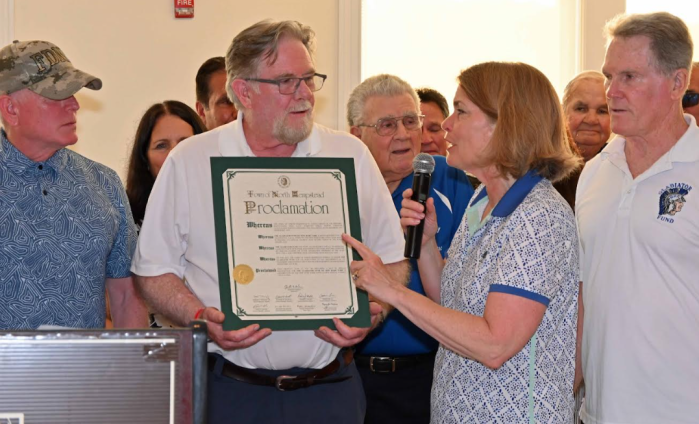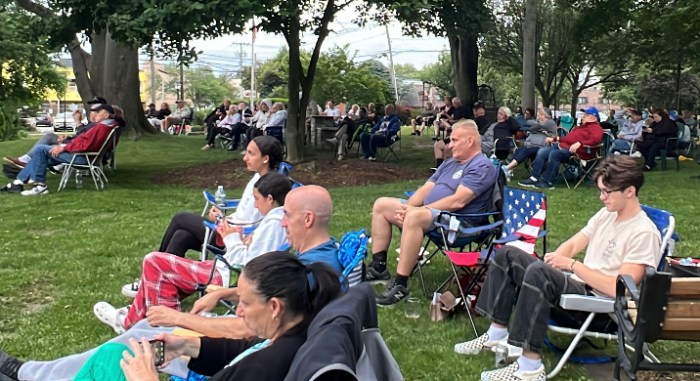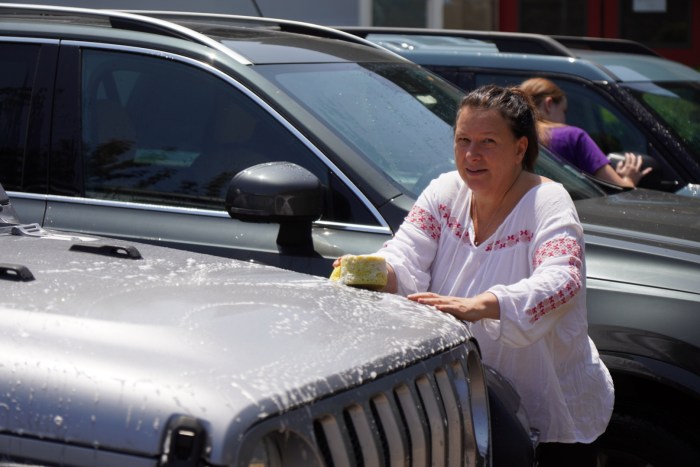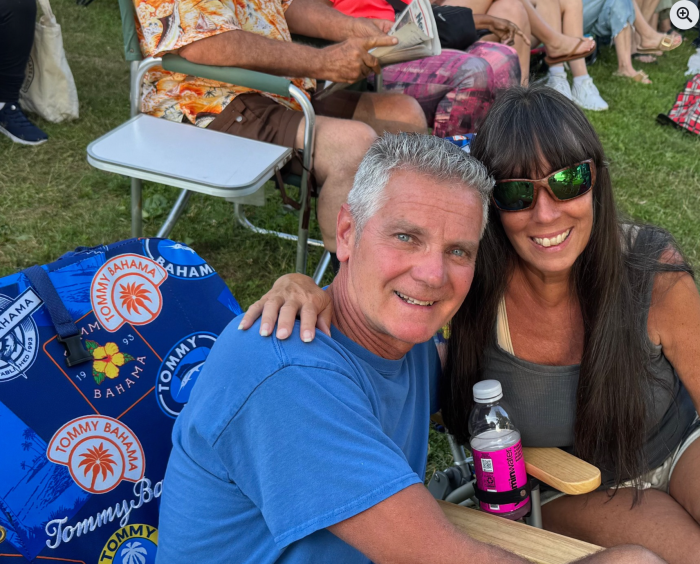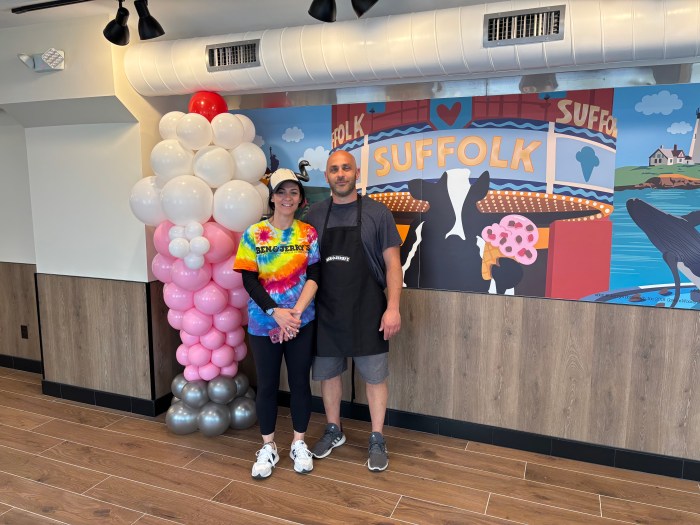Senate votes to extend 9/11 victim compensation fund; local survivor recounts

On July 23, the Senate voted 97-2 to reauthorize a bill that funds virtually permanent healthcare for 9/11 rescue workers, many of whom live on Long Island. The September 11 Victim Compensation Fund, whose benefit payments were recently cut by up to 70 percent, was set to run dry by Dec. 2020. President Donald Trump signed the bill into law on July 29, allowing claims to be filed until Oct. 2090.
“There’s a lot of people out there who haven’t even been told that they have cancer yet,” said retired FDNY lieutenant Michael O’Connell of Westbury, who attended Tuesday’s vote. “Two or three years down the road, I know I’m going to get a phone call from a friend who’s going to have a brain tumor or kidney or lung cancer.”
In 2009, O’Connell retired from the FDNY at the age of 33 after being diagnosed with sarcoidosis, which causes the body to attack its own organs and tissues. At the time, O’Connell was one of the first firefighters to be diagnosed with the rare disorder. Since then, hundreds have followed.
The World Trade Center Health Program has identified nearly 2,400 deaths linked to 9/11-related health effects. By comparison, almost 3,000 people were killed during the terror attacks. By July 2011, the program had identified more than 56,000 first responders, volunteers and others with health problems caused by exposure to toxins at Ground Zero. That number rose to over 93,000 by the end of 2018, with nearly 800 new people signing up every month for monitoring and treatment. Rhinosinusitis, gastroesophageal reflux disease and asthma are the most common ailments, but as of this May, more than 12,500 cases of cancer have been reported.
O’Connell, then 25, hadn’t yet graduated from FDNY Fire Academy when two planes hit the Twin Towers. He raced from his home on Long Island to Queens and then, with other first responders, to lower Manhattan. Within minutes he was at Ground Zero, where everything had disintegrated into rubble.
“I knew it was happening, but it didn’t seem real,” he said. “It almost felt like a scene from a movie.”
O’Connell recounted his most painful memory from that day.
“You wear an alarm that makes a loud screeching sound if you’re lying motionless. The first time I stepped foot onto the grounds, that’s all you heard,” he said. “Those were our guys underneath the piles. You couldn’t get to them.”

Nearly 350 firefighters were killed during 9/11, and on July 18, Richard Driscoll became the 200th FDNY member to die from a 9/11-related illness. On September 11, 2001, however, O’Connell hadn’t yet recognized the risk of inhaling toxic debris. Years later, he woke up one morning with pain all over his body.
“Most of my joints were inflamed to the point where I couldn’t move,” he said.
At the time, his wife Rebecca was pregnant with the first of their three children. After receiving his diagnosis, O’Connell chose to end his career at the FDNY, though he could’ve stayed on and done deskwork.
“I wasn’t going to spend one waking moment I didn’t have to away from my children,” he said. “I had to leave the job, but I found peace in going to work for the FealGood Foundation.”
John Feal founded the organization in order to ensure health benefits for 9/11 emergency personnel. As part of his work for the foundation, O’Connell and other first responders met in June with Senate Majority Leader Mitch McConnell, who then fast-tracked the bill from the House of Representatives to the Senate.
The law affects O’Connell “only in an emotional sense,” he noted, because he was previously compensated by legislation in 2015. After receiving a medication called methotrexate and high doses of steroids, he should be able to lead a long life, provided that he exercises and monitors his health.
“We all were sick and duly compensated for our illnesses,” he said. “Why should people that are getting sick now or will possibly get sick in the future be any different? We got together as a group because we knew that this was the right thing to do.”
For O’Connell and his team, the bill’s passage is a “tremendous victory.” The law’s full name is “Never Forget the Heroes: James Zadroga, Ray Pfeifer and Luis Alvarez Permanent Authorization of the September 11 Victim Compensation Fund Act,” honoring three first responders who died of 9/11-related conditions.
The law provides unlimited funding for 9/11 victims, earmarking $10.2 billion for the next 10 years and “such sums as may be necessary” through 2092. Senators Rand Paul (R-KY) and Mike Lee (R-UT) blocked the bill’s unanimous passage on July 17, pointing to growing national debt. The next day, however, they agreed to vote on the bill in exchange for votes on two amendments to the legislation. Paul’s amendment proposed offsetting the cost of the bill by cutting other programs (excluding Medicare and Social Security). He cited research on quails’ promiscuity as an example of excessive government spending. Lee’s amendment capped the bill to $10.2 billion for the next 10 years and every decade thereafter. Both noted that they didn’t oppose 9/11 survivors, instead characterizing themselves as career-long fiscal hawks.
Senator Kirsten Gillibrand (D-NY), who championed the bill, argued that Lee’s amendment would force 9/11 survivors to continually plead for their compensation; Lee countered her claim. His and Paul’s amendments failed to pass, and the two became the bill’s lone naysayers.
“I thought they were putting in these amendments to be fiscally responsible to their constituents,” O’Connell said. “But when they actually voted no, it showed their true colors.”
Overall, O’Connell believes that, in this instance, humanity triumphed over politics.
“When human lives are really on the line, the federal government does have your back,” he said. “Tens of thousands of people will be taken care of for the rest of their lives.”




